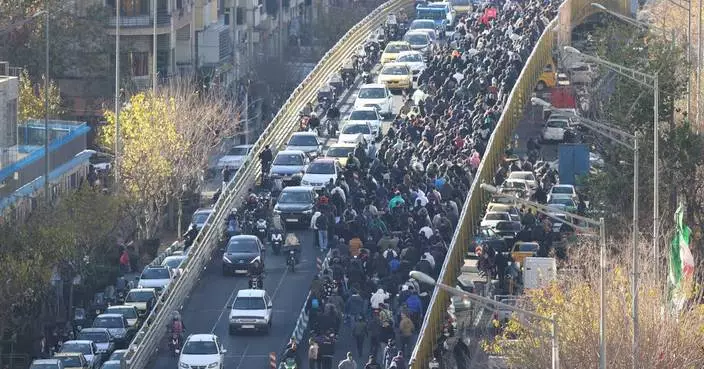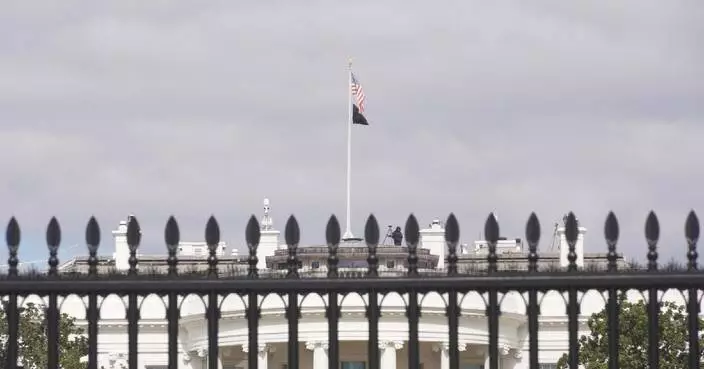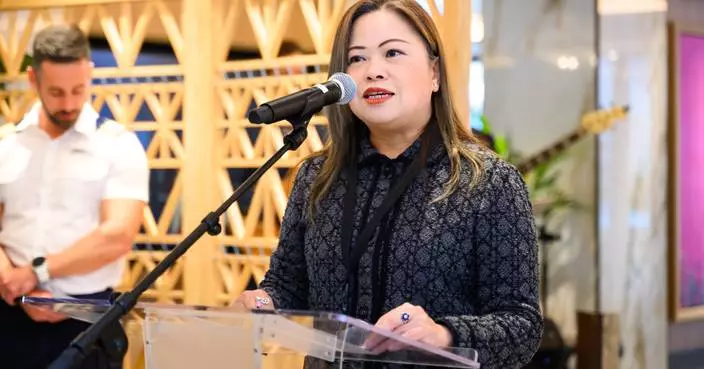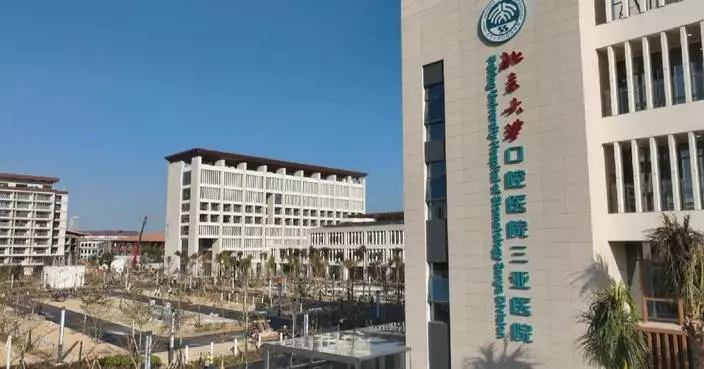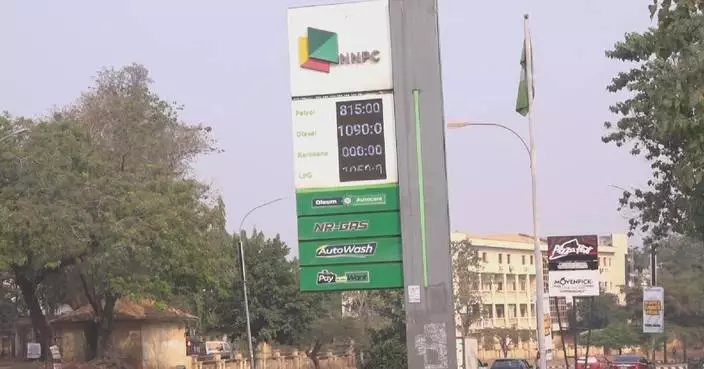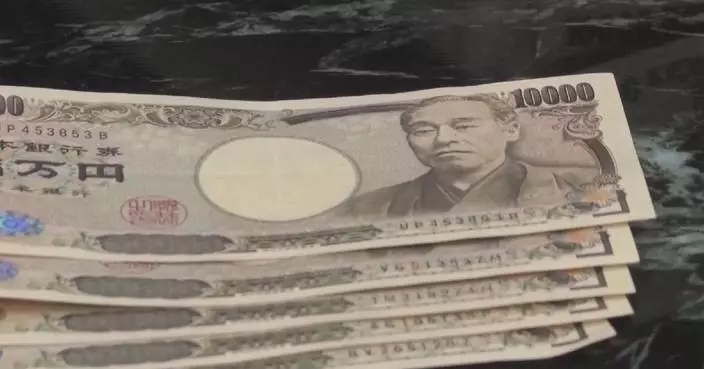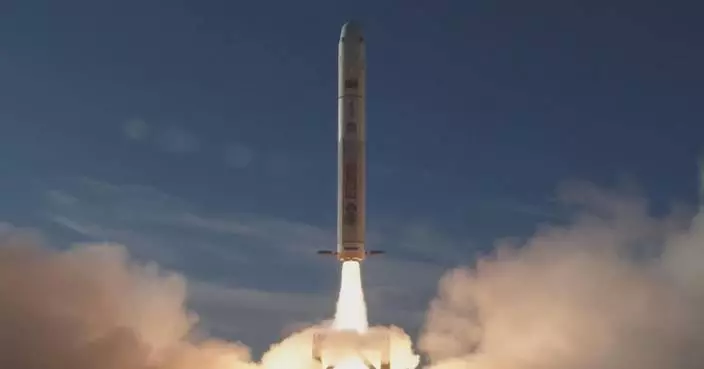Feature · News

Chinese FM says it's opportune time for China, AU to enhance strategic mutual trust, cooperation
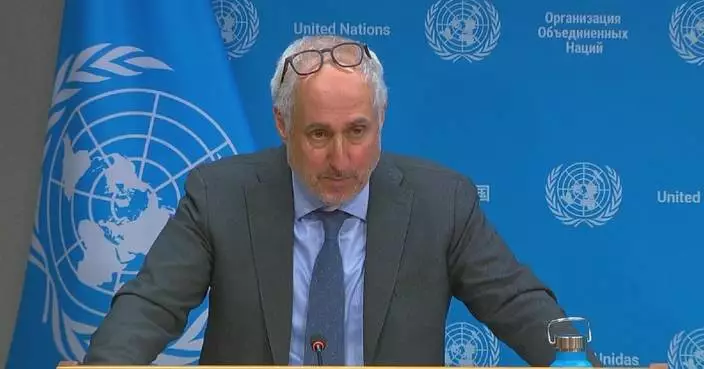
UN chief urges diplomacy amid US military threats against Iran: spokesperson

Russia reports strikes on Ukrainian energy, transportation facilities; Ukraine claims repelling Russian attacks
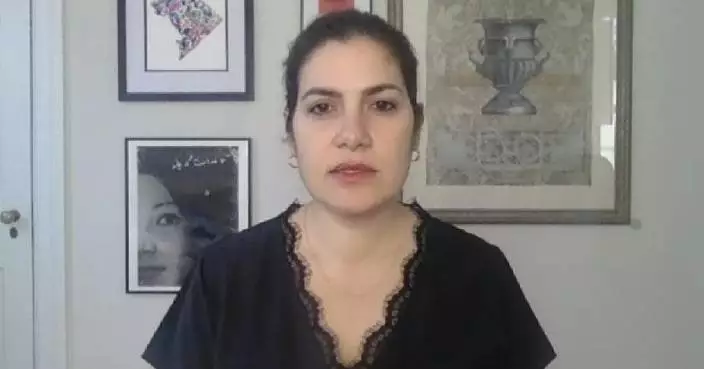
US, Iran must rebuild trust before diplomacy can succeed: expert

China's box office revenue for commercial performances hits 61.66 bln yuan in 2025

UBS forecasts 8 pct growth in China's equity market for 2026
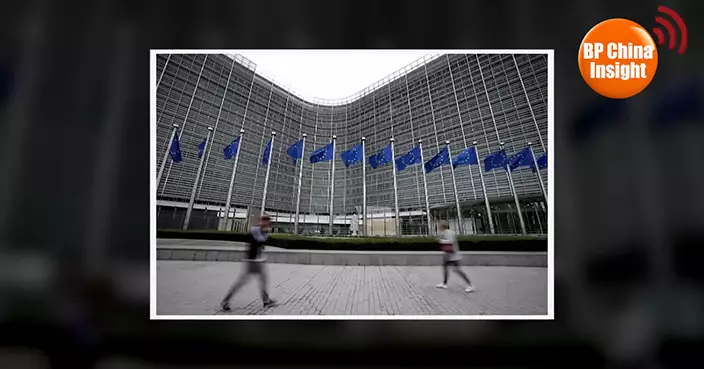
BP China Insight : Trump's Actions Have Turned the EU into an Outdated Relic of History

Cold wave triggers temperature dips, snowfall in northwest China's Xinjiang
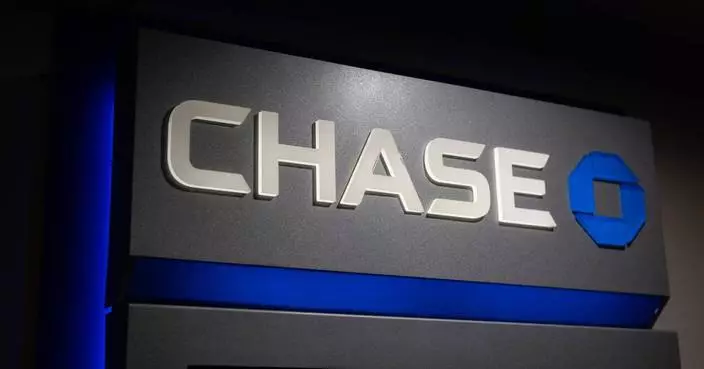
JPMorgan Chase profits rise 9% in the fourth quarter excluding hit from the Apple Card acquisition
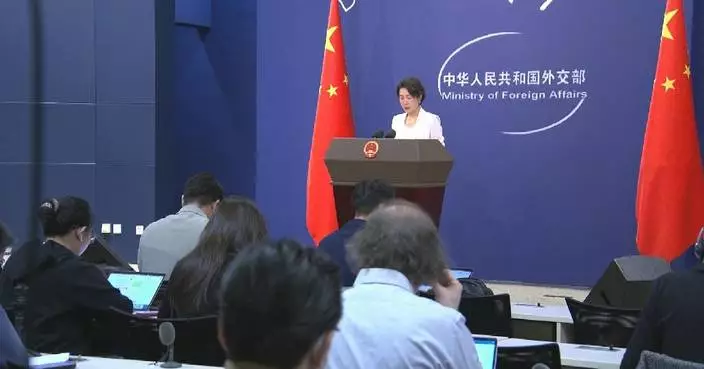
No report of Chinese casualties in Iran so far: spokeswoman
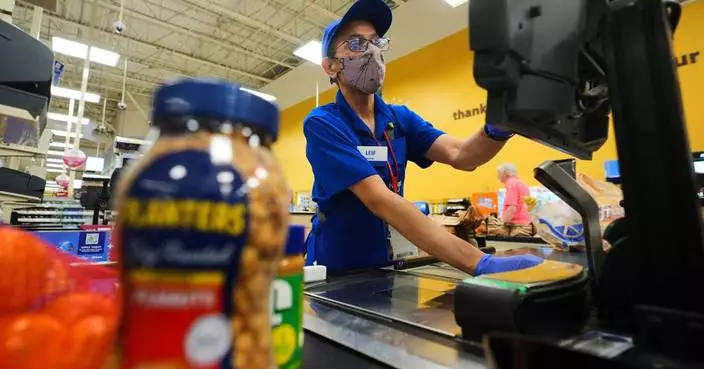
Inflation cooled slightly in December though it remains above Fed's target

David Webb, prominent Hong Kong shareholder activist, dies at 60
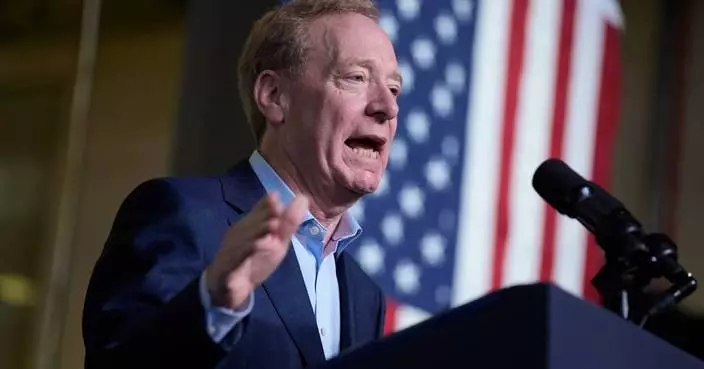
Microsoft's Brad Smith pushes Big Tech to 'pay our way' for AI data centers amid rising opposition

Xi's special envoy visits Laos
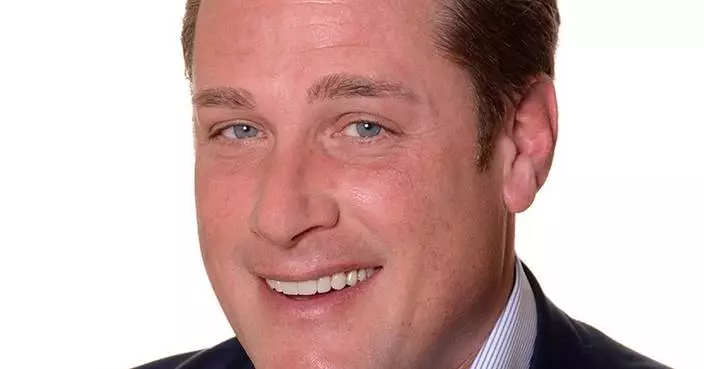
Reliance Matrix Elevates Customer Experience Strategy with Leadership Appointment

Iranians in Türkiye return home, fearing for their families amid unrest in Iran

BP China Insight : Trump's Actions Have Turned the EU into an Outdated Relic of History
Cold wave triggers temperature dips, snowfall in northwest China's Xinjiang

JPMorgan Chase profits rise 9% in the fourth quarter excluding hit from the Apple Card acquisition

No report of Chinese casualties in Iran so far: spokeswoman
Chinese FM says it's opportune time for China, AU to enhance strategic mutual trust, cooperation
UN chief urges diplomacy amid US military threats against Iran: spokesperson
Russia reports strikes on Ukrainian energy, transportation facilities; Ukraine claims repelling Russian attacks
US, Iran must rebuild trust before diplomacy can succeed: expert
China's box office revenue for commercial performances hits 61.66 bln yuan in 2025
UBS forecasts 8 pct growth in China's equity market for 2026

Inflation cooled slightly in December though it remains above Fed's target

David Webb, prominent Hong Kong shareholder activist, dies at 60

Microsoft's Brad Smith pushes Big Tech to 'pay our way' for AI data centers amid rising opposition
Xi's special envoy visits Laos

Reliance Matrix Elevates Customer Experience Strategy with Leadership Appointment
Iranians in Türkiye return home, fearing for their families amid unrest in Iran
Feature·Bloggers

【What Say You?】Accomplice Witness Chen Zihao: Family Stalked, Fears Black Bloc Revenge After Release

【Deep Blue】International Laws? You Kidding Me?

【Bastille Commentary】Chicken-hearted Conservatives: Sanctioning Hong Kong Judges While Trump Runs Wild

【What Say You?】Trump’s “Maduro Grab” Gets a Glossy Spin by the Usual Suspects

【What Say You?】Trump's Judicial Theater: Maduro's Fate Already Sealed

【Deep Throat】Trump's Venezuelan Oil Grab: Big Oil Not Playing Along?

The Latest: Trump lashes out at Federal Reserve in speech to Detroit Economic Club
- Hundreds more Venezuelans come forward to register relatives as 'political prisoners'
- Trump calls on Tehran to show protesters humanity amid reports of rising death toll in crackdown
- In New York, Hochul moves to thread needle between Democratic divides ahead of election
- Wildlife crews stop actively searching for young wolves after livestock attacks
- House passes bill codifying Trump order to rinse away showerhead regulations
- Trump visits Ford plant and defends his tariffs, hoping to counter jitters about the economy
- Minnesota protesters, agents repeatedly square off while prosecutors quit after Renee Good's death
- Minneapolis duo details their ICE detention, including pressure to rat on protest organizers
- Claudette Colvin, who refused to move seats on a bus at start of civil rights movement, dies at 86

China's Long March-8A rocket launches new satellite group
- Chang'e-6 lunar sample unveils key clues to moon's geological evolution
- China flu activity declines for fourth week, no new pathogens detected: official
- Internet blackout adds to Iran tensions: CGTN correspondent
- Chinese commerce chambers welcome latest development in China-EU EV talks
- China opens 2026 space mission schedule with successful satellite launch
- Palestinian death toll in Gaza rises to 71,424: health authorities
- Heavy snowfall blankets Serbia, disrupting power supply, transportation
- China's new trade-in program sparks consumption boom
- Economy remains primary issue as presidential election draws close in Uganda

DNV SUPPORTS NOUL IN IVDR CERTIFICATION FOR AI-BASED MEDICAL DIAGNOSTIC PRODUCTS
- NLCS (Singapore) Brings World-Class Musical Opportunities to Young Artists Across Asia
- Wall Street executives warn Trump: Stop attacking the Fed and credit card industry
- Hospital and nurses fail to negotiate during second day of NYC's largest nursing strike in decades
- GIGABYTE Redefines Human-AI Interaction at CES 2026 with a Fully Immersive, Participatory Experience
- Detroit Auto Show opens as industry pares back splashy debuts and leans on test tracks
- Wall Street pulls back from its records as JPMorgan Chase and Delta kick off earnings season
- Bargain grocer Aldi seizes the moment in an era of higher prices
- EPA proposes limiting power of states and tribes to block major projects over water concerns
- TCL Note A1 NXTPAPER Achieves Multiple Awards at CES and Launches Pre-sale, Redefining the E-Note Experience

Death toll from Iranian protests surpasses 2,000, activists say, as chaos recalls 1979 revolution
- Louisiana seeks California doctor’s extradition, testing the limits of shield laws
- Malaysia will take legal action against Musk's X and xAI over misuse of Grok chatbot
- Pentagon is embracing Musk's Grok AI chatbot as it draws global outcry
- Apple calls on Google to help smarten up Siri and bring other AI features to the iPhone
- Meta names former Trump adviser Dina Powell McCormick as president and vice chairman
- Malaysia and Indonesia become the first countries to block Musk’s Grok over sexualized AI images
- Google teams up with Walmart and other retailers to enable shopping within Gemini AI chatbot
- VR headsets are 'hope machines' inside California prisons, offering escape and practical experience
- Doctors say changes to US vaccine recommendations are confusing parents and could harm kids

'West Wing' actor Timothy Busfield turns himself in to face child sex abuse charges in New Mexico
- National Board of Review to fete 'One Battle After Another.' Here's how to watch stars' arrivals
- ‘Dances with Wolves’ actor Nathan Chasing Horse's child sex abuse trial begins
- Snoop Dogg's NBA analyst role underscores why his on-air presence and global appeal keeps growing
- SiriusXM rehires Chris Cuomo to host morning talk show
- Scott Adams, whose comic strip 'Dilbert' ridiculed white-collar office life, dies at 68
- The BBC seeks to dismiss Trump's $10B defamation lawsuit in a Florida court
- Hong Kong court moves closer to sentencing activist Jimmy Lai after hearing lighter penalty pleas
- Adelaide Writers Week canceled as 180 speakers withdraw after the exclusion of a Palestinian writer
- PBS weekend newscasts shut down due to funding cuts, replaced by single-topic programs

Ravens owner Steve Bisciotti opens up on firing Harbaugh and the search for the next coach
- Linebacker Dre Greenlaw returns from pulled hamstring as Broncos prepare for home playoff game
- Latvia to make injury replacement for the Olympics with Eriks Mateiko out
- Chloe Kim says she's 'good to go' for Olympics despite labrum tear in shoulder
- Semenyo scores again as Man City beats Newcastle 2-0 in English League Cup semifinal
- Manchester United hires former player Michael Carrick as head coach until end of the season
- Leverkusen's Bundesliga game at Hamburg postponed over stadium roof concerns
- Diamondbacks acquire 8-time All-Star 3B Nolan Arenado in a deal with the Cardinals
- Nartey's breakthrough goal gives Stuttgart a 3-2 win over Frankfurt in thriller
- Mikaela Shiffrin and Lindsey Vonn's US teammates are also making an impact in the Olympic season

Court Dismisses Chow Hang Tung's Challenge to Hong Kong's Clothing Policy for Persons in Custody
- AFCD Cracks Down on Fraudulent Sales at FarmFest 2026, Considers Permanent Ban for Violators.
- Hong Kong and Mainland China Strengthen Healthcare Collaboration with New Agreements on Chinese Medicine and Cancer Prevention.
- Severe pediatric influenza case prompts urgent vaccination reminder from health authorities.
- New 468 Employment Rule Enhances Part-Timer Rights, Effective January 18, Says Labour Secretary Chris Sun.
- SWD Celebrates Outstanding Carers at Hong Kong's Care the Carers Campaign Ceremony
- Hospital Authority Launches Phase II of Community Health Training Project with National Health Commission and Chow Tai Fook Foundation.
- Fire Services Inspect Buildings for Safety Violations, Issuing 32 Notices and One Prosecution Amid Public Concern.
- Go! Illustrators Finale Celebrates Emerging Hong Kong Picture Book Talent at International Book Fair
- Hong Kong Releases January Gravidtrap Indexes for Aedes Albopictus, Most Areas Report 0% Infestation.

China extends anti-dumping tariffs on solar-grade polysilicon imports from US, ROK
- World’s largest-diameter boring machine put into use for Yangtze River railway tunnel
- Nigeria petrol price cuts ease living costs, raise durability concerns
- Chicago expands housing supply to ease affordability pressure
- Turpan City in Xinjiang hit by continuous heavy fog
- Traditional treatments, advanced equipment on China's navy hospital ship wow Brazilian visitors
- AI tennis robot serves as perfect practice partner for players in Shenzhen
- Former Fed chairs, US officials decry criminal probe against Jerome Powell
- Chinese shares close lower Tuesday with record single-day A-share trading turnover
- Innovative technology breathes new life into centuries-old winter fishing tradition in northeast China's Jilin
Category · News

The Latest: Trump lashes out at Federal Reserve in speech to Detroit Economic Club

Hundreds more Venezuelans come forward to register relatives as 'political prisoners'

Trump calls on Tehran to show protesters humanity amid reports of rising death toll in crackdown

In New York, Hochul moves to thread needle between Democratic divides ahead of election

Ravens owner Steve Bisciotti opens up on firing Harbaugh and the search for the next coach

Wildlife crews stop actively searching for young wolves after livestock attacks

DNV SUPPORTS NOUL IN IVDR CERTIFICATION FOR AI-BASED MEDICAL DIAGNOSTIC PRODUCTS
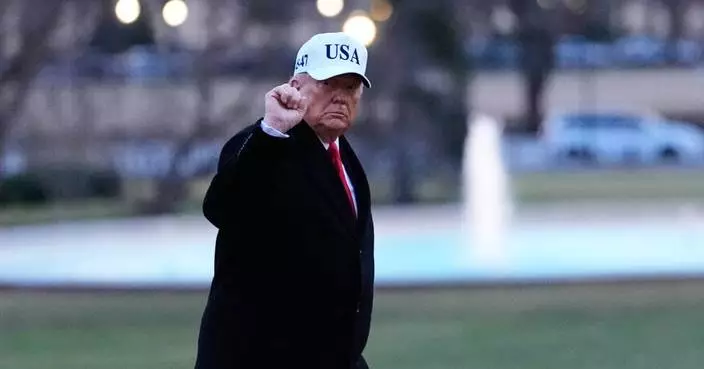
House passes bill codifying Trump order to rinse away showerhead regulations
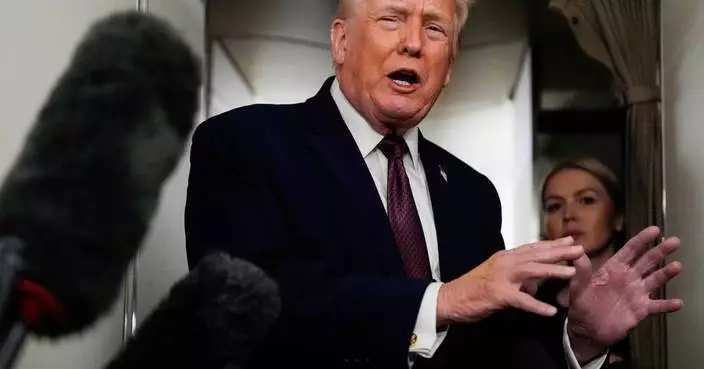
Trump visits Ford plant and defends his tariffs, hoping to counter jitters about the economy

Minnesota protesters, agents repeatedly square off while prosecutors quit after Renee Good's death

Linebacker Dre Greenlaw returns from pulled hamstring as Broncos prepare for home playoff game

Minneapolis duo details their ICE detention, including pressure to rat on protest organizers

Claudette Colvin, who refused to move seats on a bus at start of civil rights movement, dies at 86
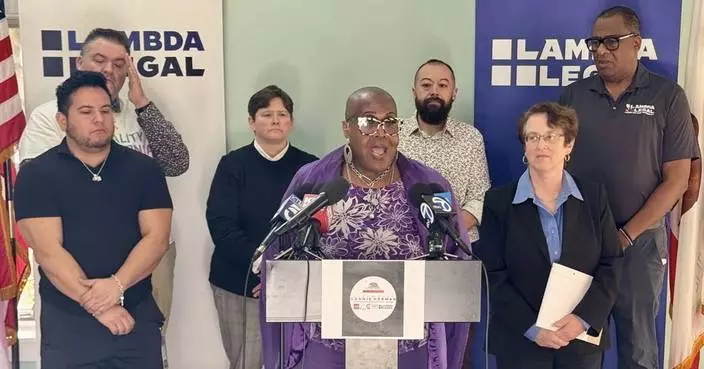
LGBTQI+ Leaders Gather in Los Angeles to Support the Rights of All Americans to Live Their Lives Freely and Fairly

Attorneys give dueling narratives to open 'au pair affair' double murder trial in Virginia

NYC Council employee’s arrest sparks protests and a dispute over his immigration status

Justice Department sees no basis for civil rights probe in Minnesota ICE shooting, official says

Latvia to make injury replacement for the Olympics with Eriks Mateiko out

Chloe Kim says she's 'good to go' for Olympics despite labrum tear in shoulder

Semenyo scores again as Man City beats Newcastle 2-0 in English League Cup semifinal

Manchester United hires former player Michael Carrick as head coach until end of the season

'West Wing' actor Timothy Busfield turns himself in to face child sex abuse charges in New Mexico

NLCS (Singapore) Brings World-Class Musical Opportunities to Young Artists Across Asia

Rio de Janeiro zoo animals are treated to popsicles as the city faces scorching summer weather
China's Long March-8A rocket launches new satellite group

Georgia lawmakers move to strike Savannah ban on guns in unlocked cars
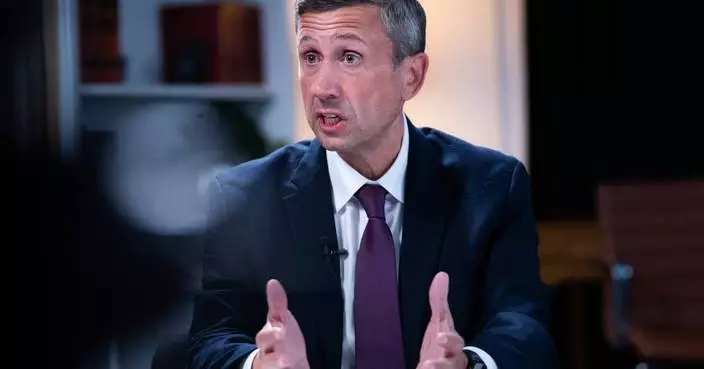
Democrats will spend millions to shift voter registration strategy ahead of the midterm elections
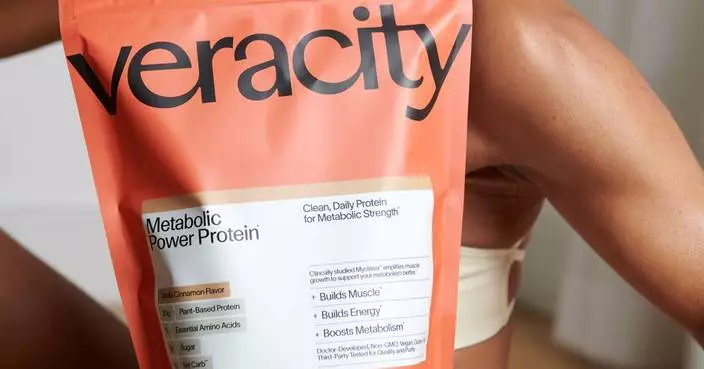
Veracity Launches Metabolic Power Protein: A Smarter Protein Designed to Strengthen Your Metabolism Without Toxicity

National Board of Review to fete 'One Battle After Another.' Here's how to watch stars' arrivals
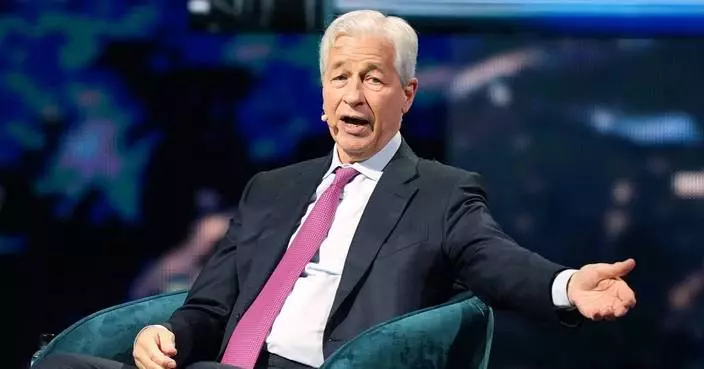
Wall Street executives warn Trump: Stop attacking the Fed and credit card industry

Denmark, Greenland leaders stand united against Trump's Greenland takeover call ahead of key meeting

The Latest: Iran eases some communications restrictions as activists say death toll spikes to 2,000
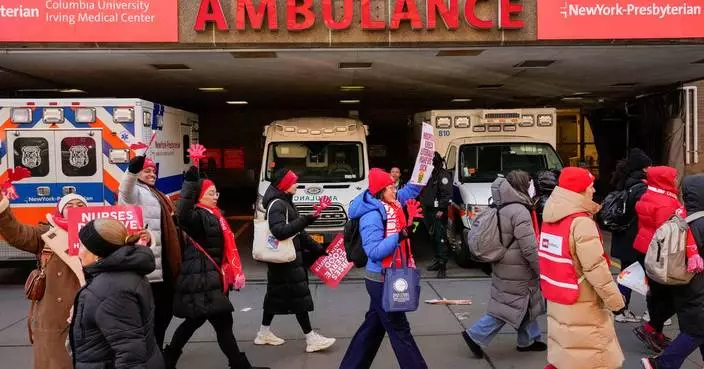
Hospital and nurses fail to negotiate during second day of NYC's largest nursing strike in decades

Death toll from Iranian protests surpasses 2,000, activists say, as chaos recalls 1979 revolution

‘Dances with Wolves’ actor Nathan Chasing Horse's child sex abuse trial begins
Chang'e-6 lunar sample unveils key clues to moon's geological evolution

Louisiana seeks California doctor’s extradition, testing the limits of shield laws

Leverkusen's Bundesliga game at Hamburg postponed over stadium roof concerns

Neurosoft Bioelectronics Wins 2026 Startup World Cup Las Vegas Regional Competition

Aptar’s Nasal Vaccine Delivery Solutions Featured in CastleVax Phase II Clinical Trial of an Intranasal COVID-19 Vaccine Candidate

GIGABYTE Redefines Human-AI Interaction at CES 2026 with a Fully Immersive, Participatory Experience

Detroit Auto Show opens as industry pares back splashy debuts and leans on test tracks

Diamondbacks acquire 8-time All-Star 3B Nolan Arenado in a deal with the Cardinals

Nartey's breakthrough goal gives Stuttgart a 3-2 win over Frankfurt in thriller

Mikaela Shiffrin and Lindsey Vonn's US teammates are also making an impact in the Olympic season

Trump administration says it is ending deportation protections for some Somali migrants

Mike Tomlin steps down after 19 seasons as coach of the Pittsburgh Steelers

Gaza's living conditions worsen as strong winds and hypothermia kill 5

Trump administration labels 3 Muslim Brotherhood branches as terrorist organizations

Eagles move on from OC Kevin Patullo after one lackluster season with him calling plays
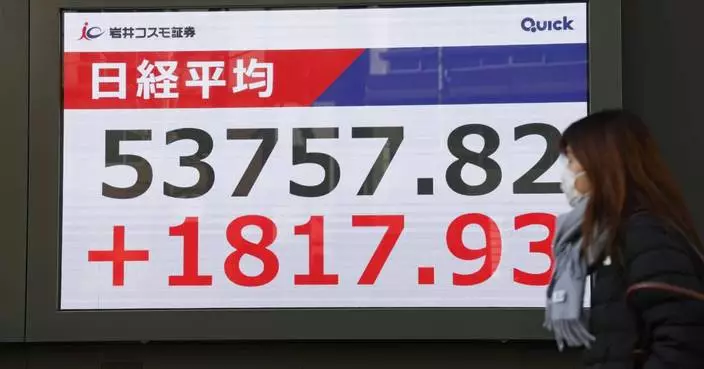
Wall Street pulls back from its records as JPMorgan Chase and Delta kick off earnings season
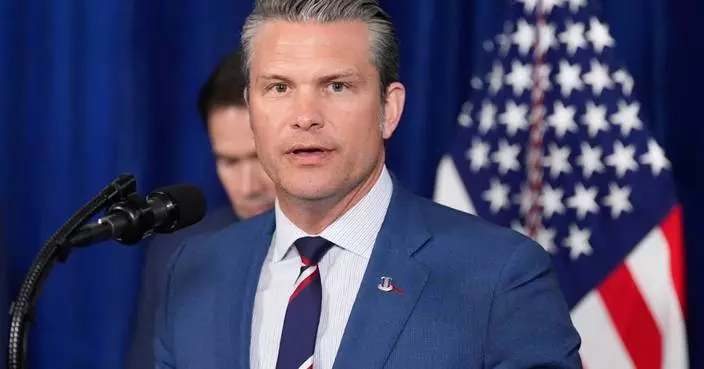
Plane used in boat strike off Venezuela was painted to look like a civilian aircraft, AP sources say
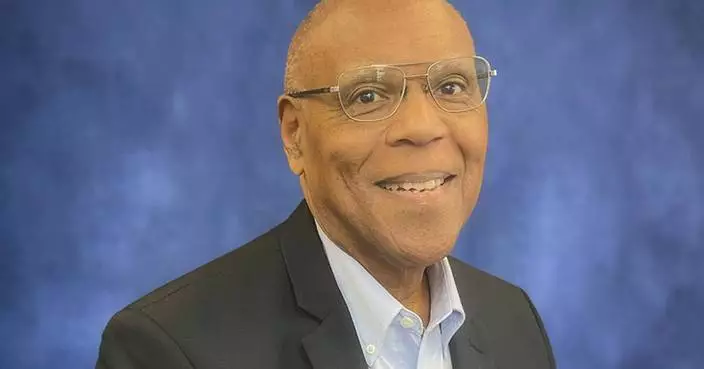
Armed Forces Benefit Association (AFBA) Appoints Larry O. Spencer Chair of the Board

Smithsonian faces a deadline to show Trump its plans for exhibits for America's 250th birthday

Costa Rica's security director says plot to assassinate president uncovered
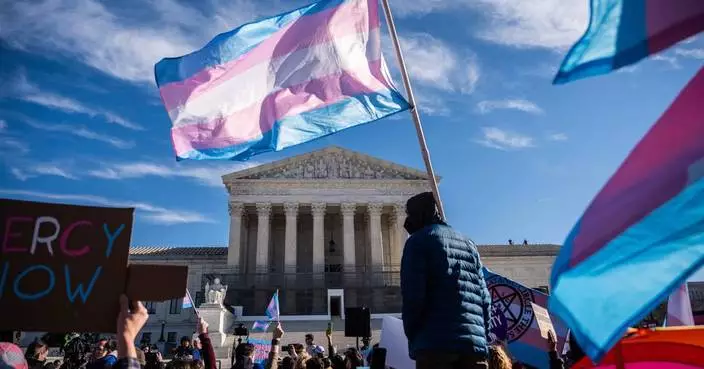
Photos of demonstrators outside the Supreme Court as it considers upholding transgender sports bans
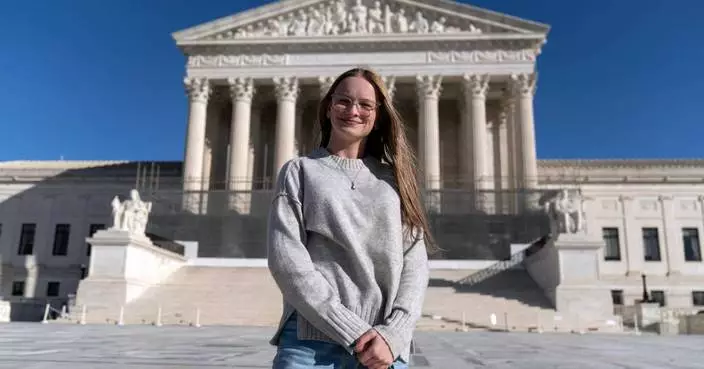
Supreme Court seems likely to uphold state bans on transgender athletes in girls and women's sports

Aubameyang, Manga reinstated after Gabon's post-Africa Cup expulsions, search for coach continues

What to know about the warrants most immigration agents use to make arrests

A suspect in the vandalism of JD Vance’s Ohio home must stay in jail until trial

AFL Introduces Fujikura 100S Fusion Splicer with Dual-Fiber Technology and CT60 Cleaver

New Incisiv Study with Toshiba and Intel Explores How Adaptive Store Operations Balance Experience and Efficiency in Specialty Retail

FACT FOCUS: Trump repeats false claims when discussing Greenland's security in the Arctic
China flu activity declines for fourth week, no new pathogens detected: official
Internet blackout adds to Iran tensions: CGTN correspondent
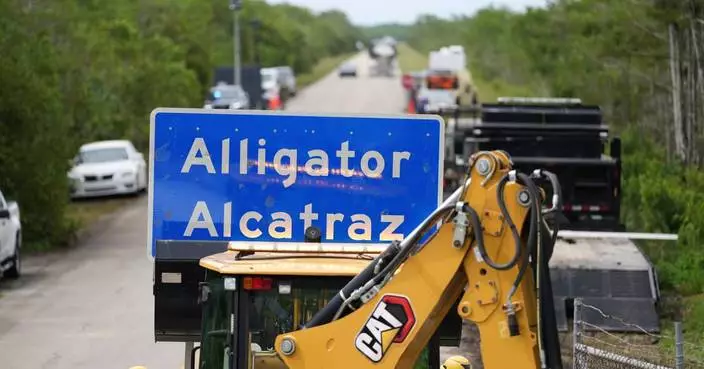
Immigrant detainee at 'Alligator Alcatraz' agrees to leave US, asks that lawsuit be dismissed

Healthy and rested Rick Bowness ready for next challenge as Blue Jackets head coach

Ex-Navy SEAL convicted of planning to fire explosives at police during San Diego ‘No Kings’ rally

Bears coach Ben Johnson offers no apologies for profane postgame speech

The Steelers are in NFL purgatory. They'll have to find a way out without Mike Tomlin
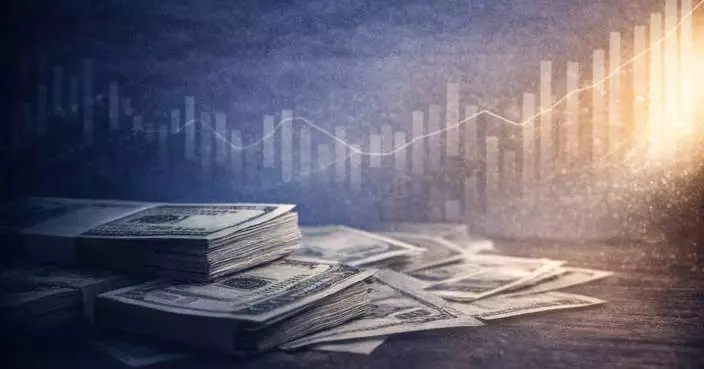
Creditors Are Leaving Money on the Table—Bankruptcy Accounts Still Hold Value

Next-Generation TFX Thermoformer Sets New Benchmark in Speed and Flexibility for High-Volume Producers
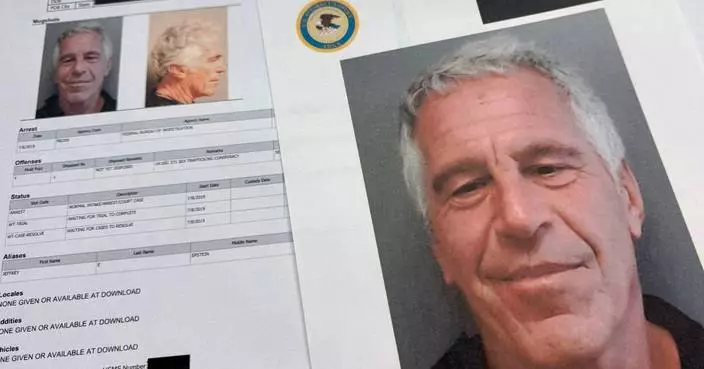
Clintons refuse to testify in House Epstein probe as Republicans threaten contempt proceedings

Bargain grocer Aldi seizes the moment in an era of higher prices

Matt Ryan is seeking to handle unfinished business in his new role as Falcons president of football
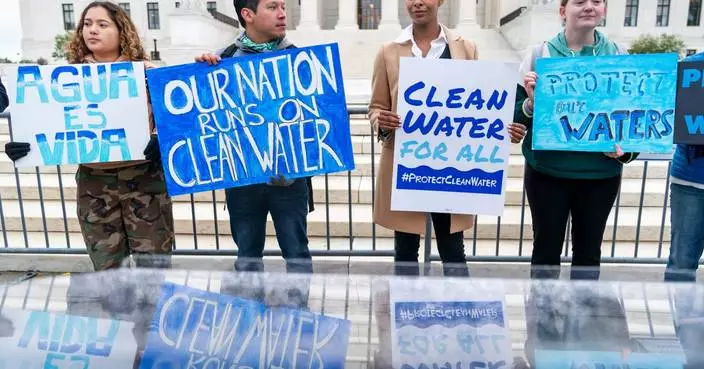
EPA proposes limiting power of states and tribes to block major projects over water concerns

Cherished Sierra Club Cabins Now Available to Book on Hipcamp for Winter

Marine Le Pen's appeal trial opens in Paris, with far-right leader's 2027 presidential bid at stake
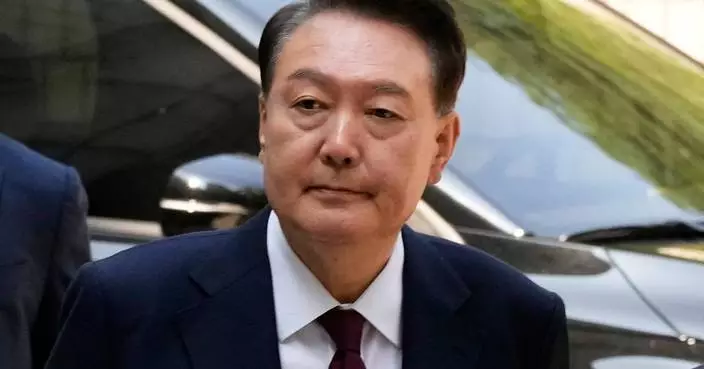
South Korean prosecutor seeks death sentence for ex-leader Yoon over martial law decree

MGallery Collection Steps Into 2026 With New and Exciting Destinations

TCL Note A1 NXTPAPER Achieves Multiple Awards at CES and Launches Pre-sale, Redefining the E-Note Experience
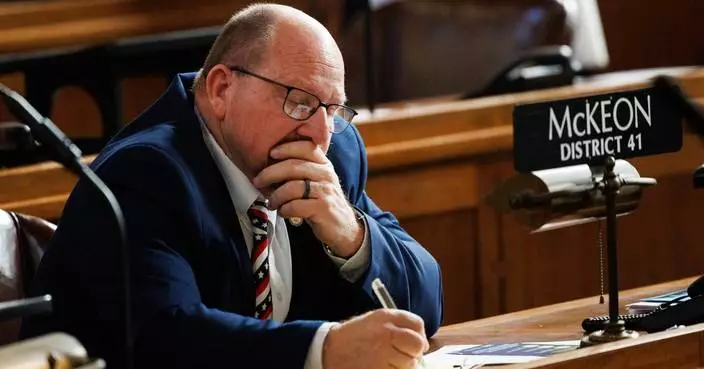
Tearful Nebraska state Sen. McKeon resigns amid accusations of inappropriate behavior

Panthers GM says team will pick up QB Bryce Young's 5th year option, no timeline on extension

NFL's wild-card weekend was full of fourth-down fun and folly along with a dearth of punts


